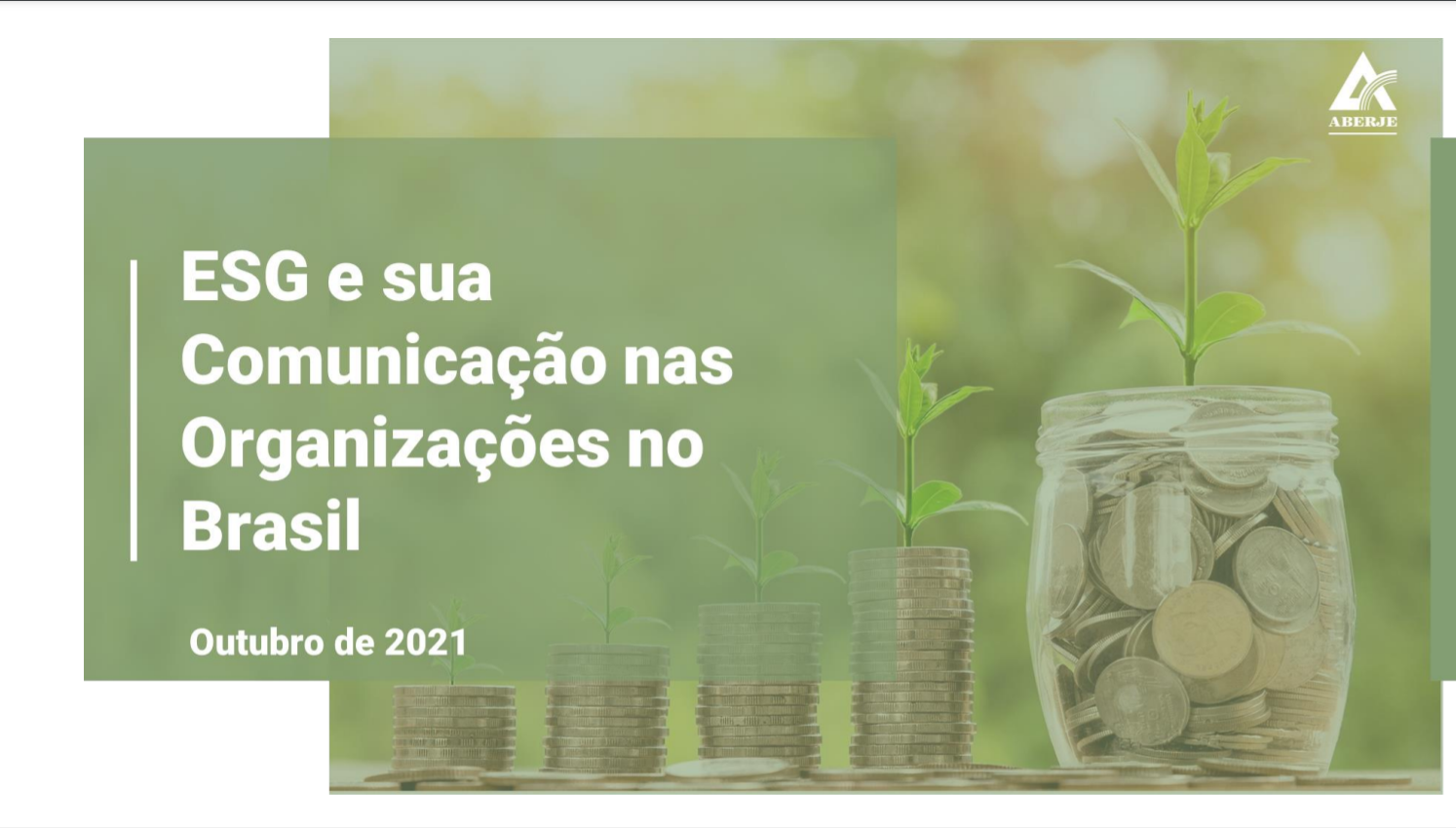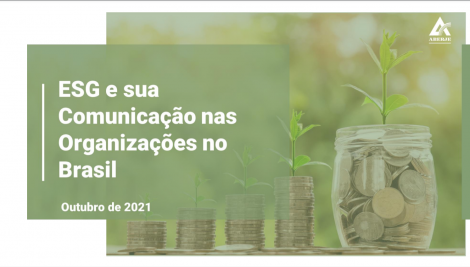ESG is a priority for 95% of organizations’ corporate agendas
Aberje research on ESG and its communication in organizations in Brazil points out that Corporate Governance is the most critical ESG factor for participating organizations

To explore the multiple interfaces of the three pillars with the communication of organizations and the complex interactions between the various agents involved in the topic, Aberje carried out the research “ESG and its Communication in Organizations in Brazil.”
The study, sponsored by Arcos Dorados (McDonald’s), was presented and debated online. The participants were the director of Communication and Sustainability at Localiza, Rozália Del Gáudio; the director of Corporate Communication and PR at Nissan Brasil, Rogério Louro; the communication superintendent of SulAmérica Seguros, Thaís Arruda; and Carlos Alberto Ramello, responsible for the survey “ESG and its Communication in Organizations in Brazil” carried out by Aberje. The communication director of the Brazil Division of Arcos Dorados, Mariana Scalzo, mediated the event.
ESG and its Communication in Organizations in Brazil
Based on Aberje’s theme of the year, “Communication and Ethical Capital,” the survey “ESG and its Communication in Organizations in Brazil,” carried out in September with the participation of 79 large companies located in the state of São Paulo, sought to identify the ESG actions within organizations’ agendas and what is being done to communicate about ESG. The study is sponsored by Arcos Dorados.
The ESG theme is present as a priority in most (95%) of the corporate agendas of the organizations participating in the survey, as follows: among the top three priorities in 38% of them, among the top five priorities in 35% of them and as the top priority in 22%. “This is translated into programs; 91% of the companies have programs focused on the issue of sustainability within the ESG pillars, and those that do not have it are working on its implementation,” said Aberje’s Carlos Ramello.
According to the study, the main objectives for working with ESG factors are to have a tangible positive impact on society, declared by 62% of respondents, and align with the organization’s objectives, mission, and values (61%). Other goals that can also be highlighted are: meeting the expectations of customers/consumers and meeting investors’ expectations. Among the main barriers/obstacles to implementing ESG projects is the limitation of funds for their implementation (35%).
In Rozália Del Gáudio’s view, robust governance leads to more appropriate decision-making. “Communicating governance is a great challenge. I think it means having transparency in how the company works, showing how the board is composed, what the policies and guidelines are, how decision-making is carried out in the organization,” she said.
“This communication must talk to different profiles. An important basis is to start at home, show what are the accepted ways of acting within the organization, often beyond compliance, establish the link between the issue of governance and culture and the correct way to act to generate this positive impact and intelligent mobility.”
Rogério Louro, from Nissan, analyzes that each company, evolving and working better with its governance, automatically connects the other companies in its chain. “It has to be done through a more conscious operation, within compliance with all the rules. If the concern is evident and only one for all companies, they all end up converging, then governance also serves to align companies,” he said.
Diversity and Inclusion
As for Diversity & Inclusion, the survey shows that 83% of organizations have a D&I program. At SulAmérica, the topic is one of essential topics and part of the company’s strategy. Thaís Arruda, from SulAmérica Seguros, said: “We have a program that involves the entire company, a multidisciplinary team with people from all areas of the company who discuss various issues to understand how we can act better, how we can better welcome these people who join the company,” she said. “We still have a long way to go, and we are willing to do that.”
Environmental Impact
Most companies have programs to reduce environmental impact, such as minimization and recycling of waste (92%), use and conservation of water (86%), energy conservation (84%), among others.
The majority of responding organizations (68%) participate in the UN Global Compact as a signatory, participant, member, or thematic patron. Most (63%) already use the SDGs – Sustainable Development Goals to define their corporate performance goals. Internal campaigns are the way organizations are using or intend to use the SDGs.
ESG-related Metrics
Assessment and measurement dashboards are critical to measuring a company’s reputation and sustainability. The ESG-related metric most used by companies is the reduction in greenhouse gas emissions. Changes in the organization’s energy efficiency (39%), general water use (30%), measurement of progress concerning the SDGs (28%), and results of brand and reputation surveys (27%) are also used.
ESG-related metrics are primarily used to communicate sustainable performance to customers and society. Fifteen percent of participating companies do not use ESG-related metrics. “What is not measured is not taken seriously. We don’t get anywhere if we don’t know where we’re going”, said Mariana Scalzo from Arcos Dorados.
Watch the full session on Aberje’s Youtube:
https://youtu.be/eAVlwF62HmY
COMENTÁRIOS:
Destaques
- Sports as an instrument of Change
- Aberje Launches Newsletter with Economic Panorama
- Charting a Path to Responsible Communication: WPRF 2023 Wraps Up in Chennai, India
- Global Alliance AGM elects new Board 2023
- Aberje discloses its positions on the Fake News Bill (PL 2630/2020)
ARTIGOS E COLUNAS
Marcos Santos Maratona da vidaMônica Brissac Thought Leadership: marca pessoal x reputação corporativaLetícia Tavares Liderança comunicadora: um tema sempre atualHamilton dos Santos Comunicação é estratégica na economia contemporâneaCarlos Parente Um salto ornamental para mergulhar no pires




























